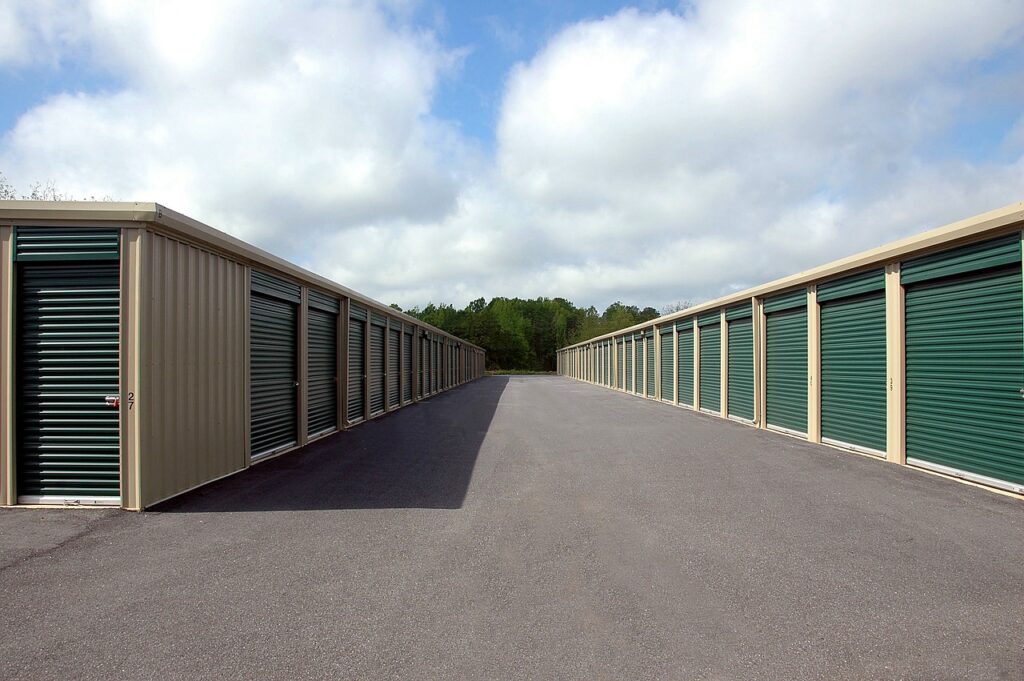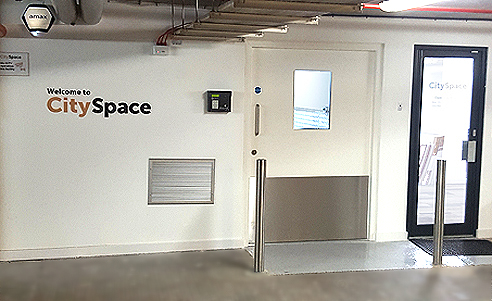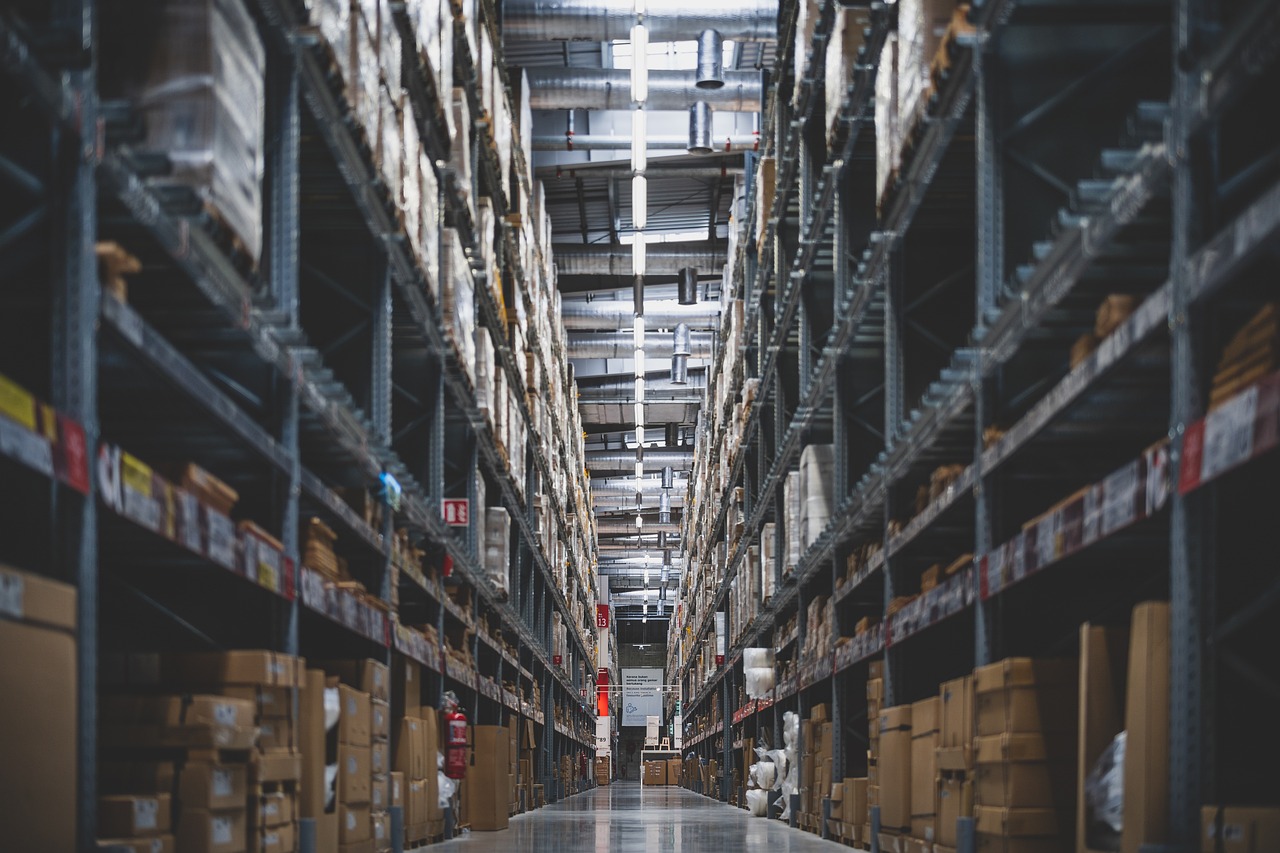In today’s fast-paced world, container storage systems have become indispensable for businesses and individuals alike. From storing personal belongings to housing business inventory, the demand for secure storage solutions is on the rise. At Amax Fire and Security, we understand the critical importance of robust container security systems to protect these valuable assets. In this comprehensive blog post, we will explore the essential aspects of container security, discuss various security measures, and provide insights into how these measures can be effectively implemented.

The Importance of Container Security Systems
Container storage systems, whether for personal use or business, often house valuable and sensitive items. Consequently, ensuring their security is paramount. Effective container security systems are designed to prevent theft, vandalism, and unauthorised access, thus safeguarding the contents and providing peace of mind to the users.
One of the key reasons for investing in advanced security measures is the increasing incidence of container-related thefts. According to recent data, the number of thefts from storage containers has risen significantly, highlighting the need for enhanced security solutions. By implementing robust security measures, businesses can not only protect their assets but also uphold their reputation and customer trust.
Key Security Measures for Container Storage Systems
Physical Security Measures
Implementing physical security measures is the first line of defence in protecting container storage systems. This includes the use of high-quality locks, reinforced doors, and secure fencing around the storage area. Physical barriers act as deterrents to potential intruders and make it more challenging for them to gain access.
High-Security Locks and Reinforced Doors
Investing in high-security locks and reinforced doors is crucial for enhancing the security of container storage systems. These locks are designed to withstand tampering and provide a robust layer of protection. Additionally, reinforced doors made of durable materials can prevent forced entry, ensuring that the contents remain safe.
Secure Fencing and Surveillance Systems
Fencing around the storage area adds an extra layer of security by restricting access to authorised personnel only. Combining this with advanced surveillance systems, such as CCTV cameras, ensures continuous monitoring of the premises. Modern surveillance systems with motion detection and night vision capabilities provide round-the-clock security and help in promptly identifying any suspicious activities.
Access Control Systems
Access control systems are essential for regulating who can enter and access the container storage units. By implementing key card systems, biometric scanners, or PIN codes, storage facilities can ensure that only authorised individuals have access. This not only prevents unauthorised access but also helps in tracking and recording the movements of individuals within the facility.
Biometric Scanners and Key Card Systems
Biometric scanners, such as fingerprint or retina scanners, offer a high level of security by ensuring that only verified individuals can gain access. Key card systems, on the other hand, provide a convenient and efficient way to control access, allowing for easy management and monitoring of entry points.
Advanced Surveillance and Monitoring
Surveillance and monitoring are critical components of a comprehensive container security system. Advanced surveillance systems equipped with high-definition cameras and remote access capabilities allow for real-time monitoring and recording of activities within and around the storage facility. This not only acts as a deterrent to potential intruders but also provides valuable evidence in case of any security incidents.
Remote Access and Real-Time Monitoring
Modern surveillance systems offer remote access, allowing security personnel to monitor the premises from anywhere at any time. This feature is particularly useful for large storage facilities, as it enables continuous oversight and quick response to any security breaches.
Integration with Alarm Systems
Integrating surveillance systems with alarm systems further enhances security. In the event of unauthorised access or suspicious activity, the alarm system can immediately alert security personnel, ensuring a prompt response. This combination of surveillance and alarms creates a robust security network that is difficult to bypass.
Cybersecurity for Digital Security Systems
With the increasing reliance on digital systems for managing container storage operations, cybersecurity has become an essential aspect of overall security. Protecting sensitive data, such as customer information, operational plans, and financial records, is crucial. Implementing firewalls, encryption, and regular security audits can help safeguard digital assets from cyber threats.
Firewalls and Encryption
Firewalls act as a barrier between the internal network and external threats, preventing unauthorised access and data breaches. Encryption, on the other hand, ensures that any data transmitted or stored is securely protected from potential cyber-attacks.
Regular Security Audits
Conducting regular security audits helps in identifying vulnerabilities and ensuring that all security measures are up to date. By staying proactive and addressing potential weaknesses, businesses can significantly reduce the risk of cyber threats.
Staff Training and Awareness
Security measures are only as effective as the people who implement and maintain them. Therefore, regular training and awareness programs for staff are essential. Employees should be trained on the importance of security, how to use security equipment, and how to respond to emergencies. Additionally, fostering a culture of security awareness can help in identifying and addressing potential security issues before they escalate.
Regular Training Programs
Regular training programs ensure that all staff members are well-versed in security protocols and procedures. This not only enhances their ability to respond to security incidents but also helps in preventing potential breaches through vigilant and informed practices.
Promoting a Culture of Security Awareness
Creating a culture of security awareness within the organisation encourages employees to take an active role in maintaining security. This includes reporting suspicious activities, following security protocols, and staying informed about the latest security trends and best practices.
Regulatory Compliance and Best Practices
Adhering to regulatory requirements and industry best practices is vital for effective container security systems. Regulations such as the UK’s Data Protection Act and guidelines from the Self Storage Association UK provide a framework for maintaining high security standards. Compliance with these regulations not only ensures the safety of the facility but also helps in avoiding legal liabilities.
Data Protection and Privacy
Ensuring the privacy and protection of customer data is a key aspect of regulatory compliance. By implementing stringent data protection measures, storage facilities can safeguard customer information and maintain trust.
Ensuring a Secure Future for Container Storage
In conclusion, implementing effective security measures for container storage systems is essential for protecting valuable assets and maintaining operational efficiency. By adopting a comprehensive approach that includes physical security, access control, advanced surveillance, cybersecurity, staff training, and regulatory compliance, storage facilities can significantly enhance their security posture. At Amax Fire and Security, we are committed to providing cutting-edge security solutions tailored to the unique needs of container storage systems, ensuring a secure and sustainable future for our clients. For more information on our services, please visit our self-storage security page.





